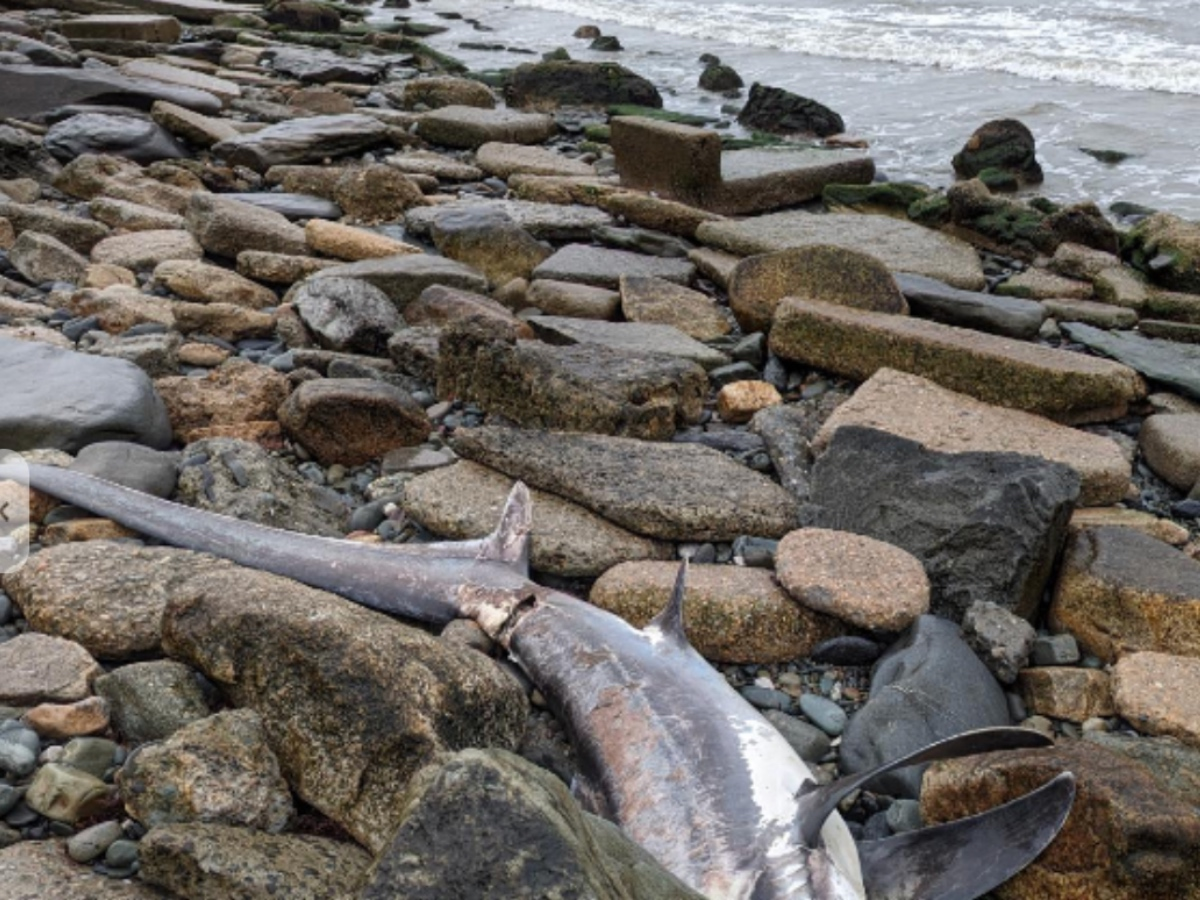Community Corner
Shark Washes Ashore In Middleton, Expert Answers Burning Questions
Shark strandings on the beach provide an opportunity for important research, according to a Northeast Fisheries Science Center expert.

MIDDLETOWN, RI — Even days after a 12-foot thresher shark washed ashore at Middleton's Second Beach, the community has been left with more questions than answers — and even experts don't have them all.
"Sharks don't wash ashore in Rhode Island regularly," Michelle Passerotti, Ph.D. of the Apex Predators Program at the Northeast Fisheries Science Center Narragansett Lab told Patch in an email Tuesday. "It's quite sporadic, maybe a handful of times a year."
The circumstances surrounding the shark's death are another mystery, thanks in part to the fact that the shark's jaw had been removed by the time biologists arrived to perform a necropsy, according to WPRI.
Find out what's happening in Middletownwith free, real-time updates from Patch.
What we do know is that most sharks that are found washed ashore died farther out in the ocean before drifting inland with the tide, Passerotti said. However, there are cases when sharks become sick and end up washing up alive after becoming close to shore because they are "not behaving or swimming normally," according to Passerotti.
But what, other than old age and fishing, might kill a shark?
Find out what's happening in Middletownwith free, real-time updates from Patch.
"We actually don't know a lot about diseases in sharks, mostly because very few sick sharks are observed," Passerotti said, emphasizing that this is likely due to the rarity of sick sharks making it to shore as opposed to the actual rarity of disease.
"We do know of some pathogens like Carnobacteria or even types of fungus that can infect sharks and cause encephalitis, which has been documented in species across the world," according to Passerotti. "Sometimes outbreaks of pathogens can cause relatively large mortality events, as have been documented in salmon shark and leopard shark populations on the US west coast."
As far as the frequency of beached sharks across the country, there aren't necessarily hotspots with an unusual number of incidents, Passerotti said.
"Although strandings sometimes have a seasonality component depending on the location," she explained. "For instance, we tend to see more strandings in fall and winter around Cape Cod, because of the unique geography coupled with the big drops in temperatures that occur that time of year."
If ever you come across a shark on the beach, be sure to give the National Oceanic Atmospheric Administration a call so biologists can gather information, Passerotti told WPRI.
"These samples are very valuable for research," Passerotti added. "In a lot of cases, [the samples] come from species or sizes of sharks that we don’t necessarily have access to often, so we have to really try and get out there as quickly as possible."
Get more local news delivered straight to your inbox. Sign up for free Patch newsletters and alerts.